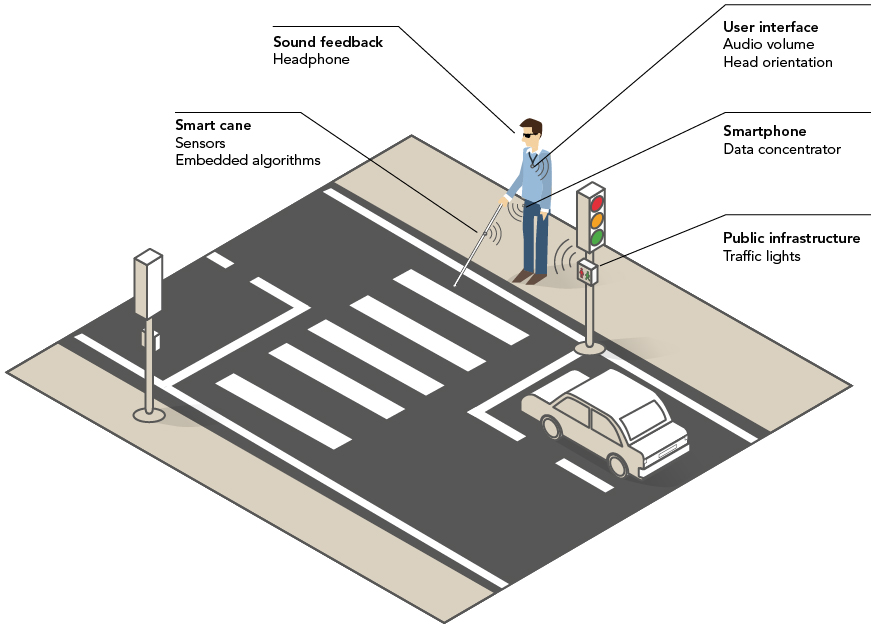INSPEX to Combine Knowhow of Nine European Organizations to Create Portable and Wearable Spatial-Exploration Systems
GRENOBLE, France – Feb. 2, 2017 – Leti, a technology research institute of CEA Tech, today announced a European project to develop a portable and wearable, multisensor and low-power spatial-exploration and obstacle-detection system for all conditions of weather and visibility.
The INSPEX system will adapt obstacle-detection capabilities common in autonomous cars for portable and wearable applications, including guidance for the visually impaired and blind, robotics, drones and smart manufacturing. It will be used for real-time, 3D detection, location and warning of obstacles under all environmental conditions. These include smoke, dust, fog, heavy rain/snow, and darkness, and in indoor and outdoor environments with unknown stationary and mobile obstacles.
Applying expertise and technologies of the nine partners in the three-year project, the system will be based on state-of-the-art range sensors such as LiDAR, UWB radar and MEMS ultrasound.
Coordinated by Leti, INSPEX will miniaturize and reduce the power consumption of these sensors to ease their integration in the new system. They will then be co-integrated with an inertial measurement unit (IMU), environmental sensing, wireless communications, signal-and-data processing, power-efficient data fusion and user interface, all in a miniature, low-power system designed to operate within wider smart and Internet of Things environments.
The main project demonstrator will embed the INSPEX system in a white cane for the visually impaired and provide 3D spatial audio feedback on obstacle location.
“Sophisticated obstacle-detection systems such as those in autonomous vehicles are typically large and heavy, have high power consumption and require large computational capabilities,” said Suzanne Lesecq, project coordinator at Leti. “The INSPEX team will work together to miniaturize and adapt this technology for individual and personal applications, which will require even greater capability for all-conditions obstacle detection. The project is a strong example of European innovation to bring leading-edge technology to a broader segment of users.”
In addition to applications for the visually impaired, drones and robots, the INSPEX system application domains are expected to include:
- Human mobility – First responders, disabled persons
- Instrumentation – Distance-measuring tools
- Smart homes and factories – Assembly machines, security surveillance systems
Joining Leti in the project are:
- University of Manchester, UK
- Cork Institute of Technology, Ireland
- STMicroelectronics SRL, Italy
- Swiss Center for Electronics and Microtechnology CSEM, Switzerland
- Tyndall National Institute University College Cork, Ireland
- University of Namur ASBL, Belgium
- GoSense, France
- SensL Technologies Ltd., Ireland























